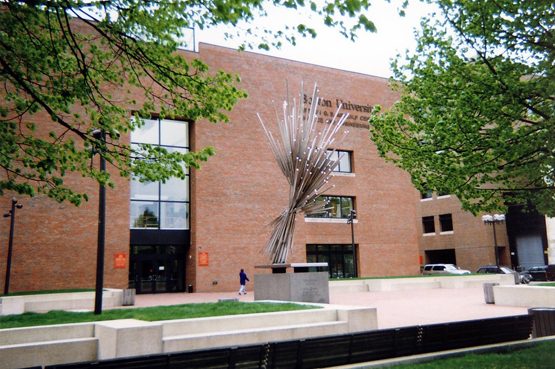Graduating Green
Engineering’s new major responds to new paradigm

Uday Pal is a top researcher in clean energy fuel-cell technology. The expertise of this College of Engineering professor includes converting waste to fuel, generating hydrogen, and processing green energy materials. Now, thanks to a new ENG concentration, energy technologies and environmental engineering, undergraduates can focus on such groundbreaking research.
The major will give ENG students “exposure to research and training for careers related to the energy challenge,” says ENG Dean Kenneth R. Lutchen.
The new concentration, available to those graduating in January 2011 and beyond, will not require extra credits. It is “designed to allow students to satisfy the course work without overloading,” says Lutchen. The 16-credit course work will include two intro courses, Introduction to Environmental Engineering and Introduction to Energy Technologies, and two specialized electives. An “experiential component” is required and can be fulfilled by an industrial internship, directed study, laboratory research, or a senior design project.
The electives will offer some degree of choice. “Students will be able to take courses throughout the College of Engineering, as well as courses offered in other schools and departments at BU,” says Pal, who will teach in the program. Among the non-engineering elective options are Environmental Policy and Climate related courses offered by the College of Arts & Sciences.
The interdisciplinary nature of the concentration will “empower College of Engineering students far more in terms of flexibility when they get out and get into industries dealing with the energy challenge,” Lutchen says. Possibilities include the fields of solar energy, wind energy, biofuels, and garbage-to-fuel technology.
“Many companies are looking for a new kind of engineer,” he says, “one who understands the fundamentals of engineering and how they might be used to innovate environmental technologies.”
Innovative energy development is one part of the economy that has remained strong, according to a recent study published by Pew Charitable Trusts. The study found that 80 percent of venture capital investments last year — more than $120 billion — were in what’s known as “cleantech,” and that “job growth in the clean-energy economy outperformed total job growth in 38 states and the District of Columbia between 1998 and 2007.”
Elena Pliakas (ENG’12) plans on concentrating in the new major because of this. “Clean energy is going to be a growing field,” she says, and has another attractive quality as well — it offers a way to make an environmental difference.
“My sense from the faculty and chatter among the students is that there is enormous potential for widespread interest and participation over the next couple of years,” says Lutchen. “We are actually concerned about the courses maxing out.”
But “that would be a good problem to have here at BU — and for the nation,” he says.
Read more about the new concentration here.
Brendan Gauthier can be reached at btgauth@bu.edu. Devon Maloney can be reached at devon.maloney@gmail.com.
Comments & Discussion
Boston University moderates comments to facilitate an informed, substantive, civil conversation. Abusive, profane, self-promotional, misleading, incoherent or off-topic comments will be rejected. Moderators are staffed during regular business hours (EST) and can only accept comments written in English. Statistics or facts must include a citation or a link to the citation.